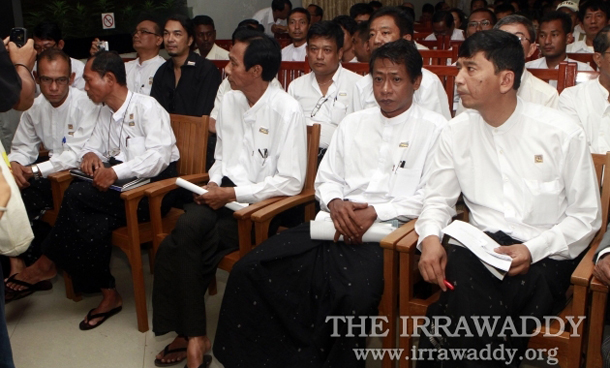RANGOON—Members of the 88 Generation Students set off for a tour of conflict-ridden eastern Burma on Wednesday in order to meet ethnic leaders and learn more about minority issues in the region.
“We will go to Kayah State to attend the Kayan National Day ceremony where we can meet ethnic leaders in the region,” said Pyone Cho, one of the group leaders. He added that they also plan to survey what was required for reconciliation in the area.
With Shan State to the north and Thailand’s Mae Hong Song province on the east, the region is primarily inhabited by Kayah or Karenni (Red Karen) peoples. The area has long been scarred by battles between Burmese government troops and local armed militias who have been seeking greater autonomy since the country gained independence from the British in 1948.
“We want to build understanding among ethnic minorities. To do so, we have to listen to their voices and understand the current situation there,” Pyone Cho told The Irrawaddy.
Since their release from prisons across the country in January, the 88 Generation Students have focused on peace building and promoting a transparent society by touring different parts of the country including refugee camps for victims of the ongoing violence in Kachin State.
The armed ethnic Kachin minority and government troops are currently engaged in a protracted conflict which has forced around 70,000 people from their homes to live in make-shift camps by the Chinese border.
“Our future plans will be all about peace building and forming a transparent society. By transparency, we mean exposing public grievances and advocating the fundamental rights of the public,” said another group leader, Min Ko Naing, at a press conference in early March.
Pyone Cho said other key 88 Generation leaders, including Min Ko Naing and Ko Ko Gyi, will join the tour later this week for the Kayan ceremony which will be held on April 10 in Than Taung Gyi Township. They will then go to Ma U Bin, a delta town in Irrawaddy Division, to meet with local residents to discuss building a transparent society there.
According to Ko Ko Gyi, the group wants to meet as many local people in ethnic minority areas across the country as possible to listen to “the silenced voices” in order to achieve inclusive peace building.
“Whenever there are peace talks, it’s just between the ethnic armed groups and the government. No tangible results are made, and the peace process gets nowhere. We’ve never heard what grass roots people think about these issues. We think it’s essential to give them a voice on what is happening in their region.”
After their visit to war-torn Kachin State in February, the group offered to help broker a peace deal between the rebels and government and issued a statement that called on the both sides “to hold a political dialogue as soon as possible to end the civil war and establish genuine peace.”
Pyone Cho said that ending civil wars and ethnic conflicts was so important for the nationwide peace process that the group made lasting ceasefires a priority shortly after their release.
“So now we are trying to implement what we said. There will be more trips in the near future to encourage the peace building process,” he added.















